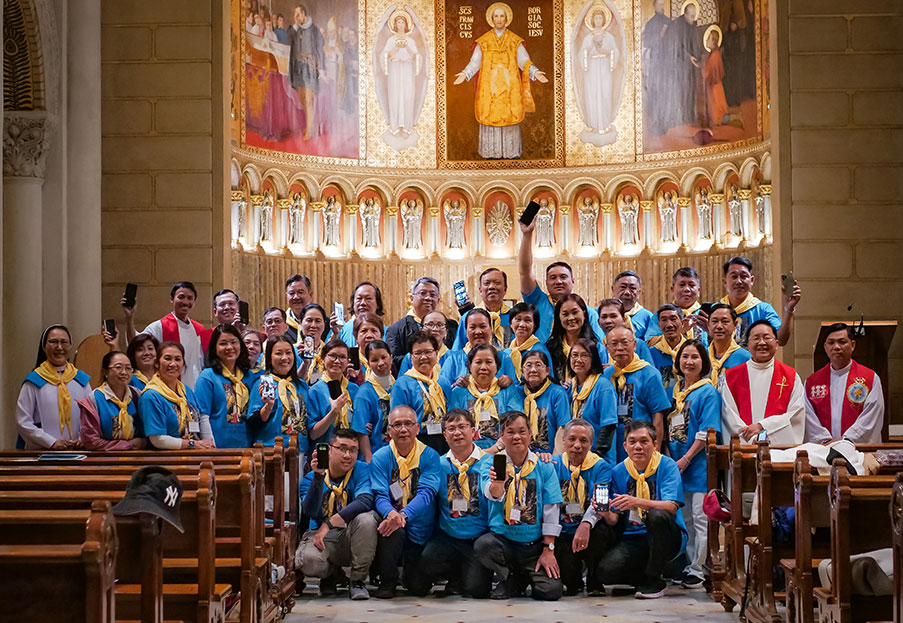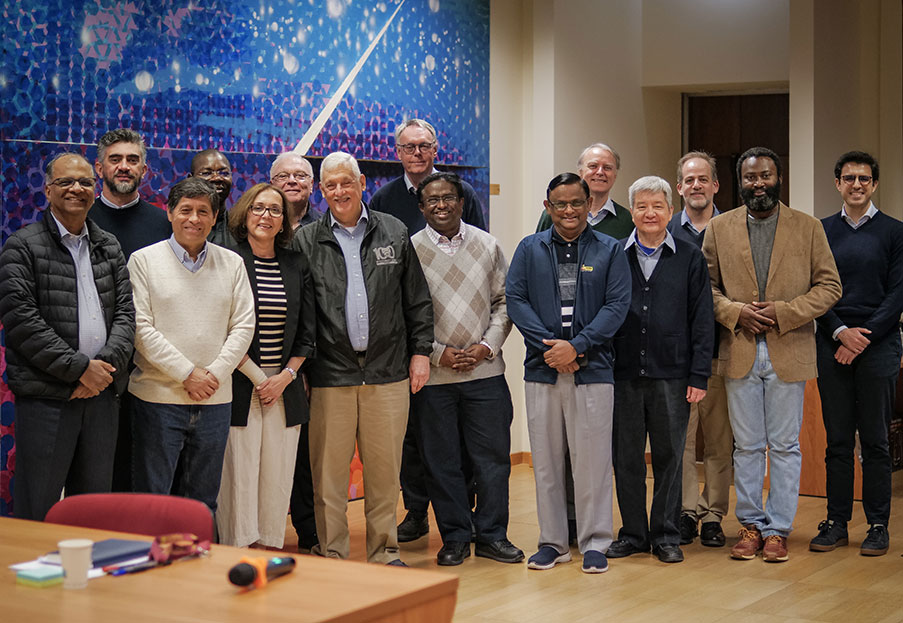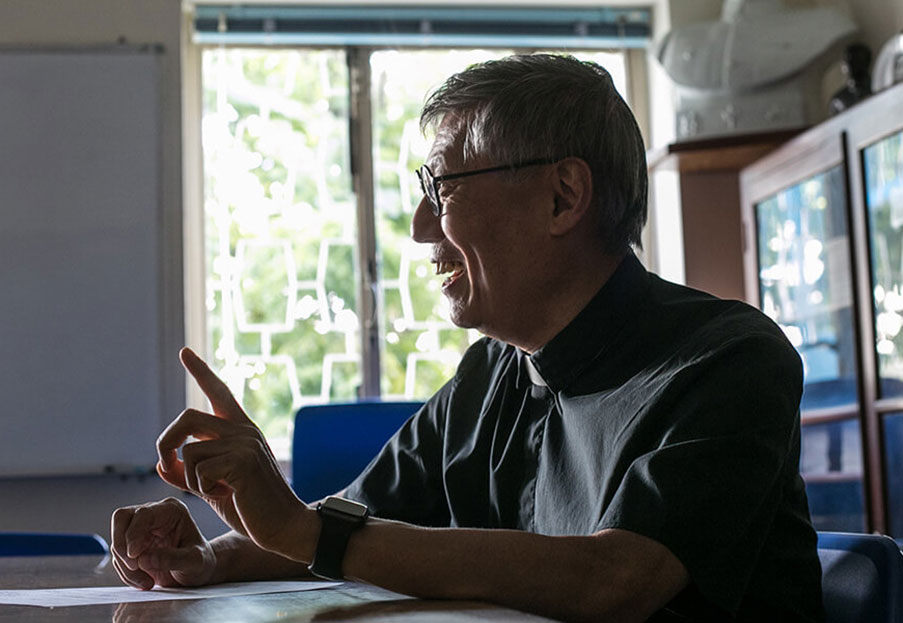Engaging in Environmental Justice and Sustainability: Immersion Experience in Cambodia
By Virginia Rider and Mandia Mdluli,
McGrath Graduate Fellows, University of San Francisco
Guided by the Ignatian Pedagogical Paradigm and the Universal Apostolic Preferences of the Society of Jesus, the McGrath Graduate Fellows from the University of San Francisco (USF) had the opportunity to engage with local communities and Jesuit partners in Cambodia during the summer of 2023.
During a two-week immersion experience, USF
students learned about the devastating effects of climate change on Cambodian
natural resources and livelihoods. They had meaningful conversations with local
Cambodians about the injustices they are currently facing and witnessed the
increasing social and geopolitical challenges in the region. One of the main
topics was the forced migration in Cambodia due to the depleted fishing
industry at Tonle Sap Lake and the harm done to the environment by illegal deforestation.
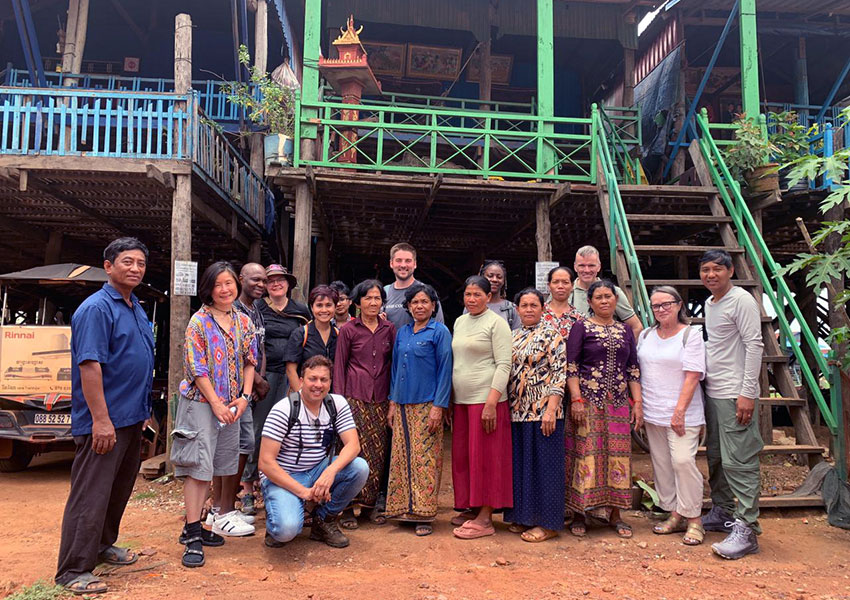
With the Community Council of the fishing village.
Our time in Cambodia offered me the chance to have a truly diverse range of conversations - with a fellow scholar while waiting for a plane, with a gender justice activist on an early-morning van ride, with a conservationist family in the jungle - and I remain in awe of the knowledge and time they freely shared. In the same vein, visiting sacred sites so intertwined with Cambodian daily life, such as the Angkor Wat and Sambor Prei Kuk temples, has given me new appreciation for the struggle to protect Indigenous lands in states like California, in the USA.
The McGrath Graduate Fellows were particularly humbled and inspired by
the aid already provided by Jesuit institutions in the country. Particular
highlights include the Xavier Jesuit School and Jesuit Refugee Service.
Students learned a lot from the dedicated leaders of these services and could
see their positive impact. The Jesuit services in Cambodia are relentless
champions of social and climate justice and models of
Jesuit action.
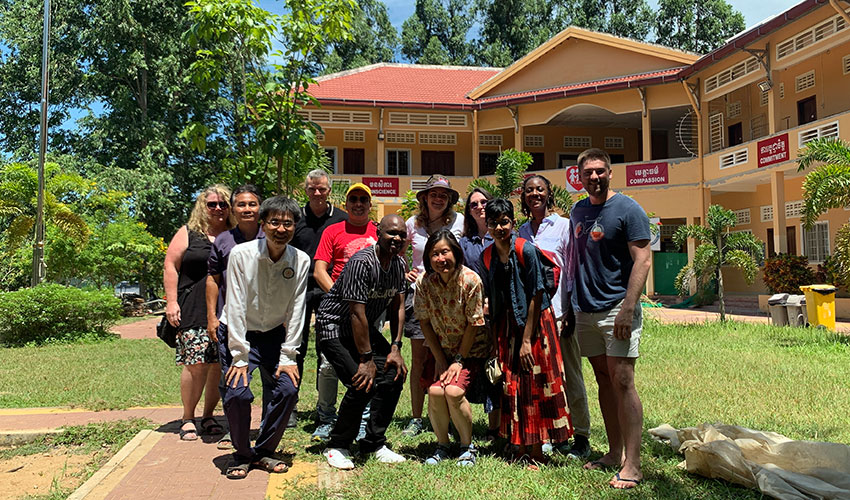
The McGraw fellows at the Xavier Jesuit School.
My curiosity was illuminated by the bustling ancient temples, fishing villages, deforestation projects, farmers markets, community agricultural projects led by women, and the role of the Jesuit Refugee Service. The integration of the Ignatian pedagogy paradigm shaped my strategic thinking in tackling social and climate justice challenges. I was inspired by Cambodian individuals and organizations uplifting marginalized communities through collaboration and compassion.
For the McGrath Graduate Fellows, being in fellowship is not limited to
being in communion with one another, now they are in fellowship with the Jesuit
mission already on the ground in Cambodia. Students are engaged in solidarity
with the communities as they continue the push for meaningful reflections,
dialogues, and actions towards social and climate justice. Now, they are
preparing to take action visiting leaders in Washington, D.C. during the
Ignatian Family Teach-in for Justice, the largest annual social justice
conference in the United States.
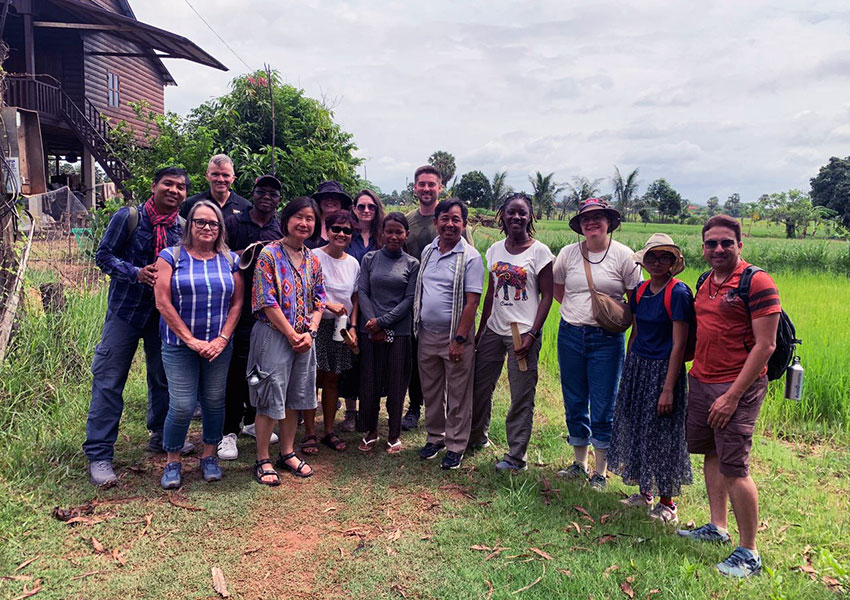
Group from a Female Farmers Association.



